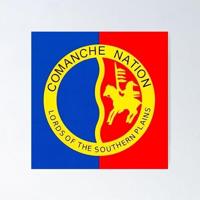OKLAHOMA CITY — As Gov. Kevin Stitt’s administration continues to clash with Oklahoma’s tribes in the courtroom, the state is paying his legal costs using gaming compliance fees from the tribes.
The state will pay at least $3.3 million in legal fees associated with ongoing tribal disputes, according to a report issued by a legislative watchdog agency.
A Legislative Office of Fiscal Transparency report found the Office of Management and Enterprise Services is paying the legal fees associated with state-tribal disputes through a tribal gaming compliance fund, which pays for the oversight of gaming operations.
Attorney General Gentner Drummond’s Office took Stitt to task over the report’s findings.
“This revelation in the LOFT report is further proof that the governor has drained millions of public dollars in his ongoing vendetta against tribal nations,” Drummond’s office said in a statement. “The attorney general has been strongly opposed to using public money in a futile and seemingly endless effort to invalidate state law in favor of expanded federal authority.”
Stitt spokesperson Abegail Cave said the Governor’s Office is unsure how LOFT came to its $3.3 million figure. Former Gov. Mary Fallin and possibly other former governors used the same compliance funds to defend compacts, she said.
The tribes with gaming operations pay annual fees to the state that can be used to hire legal counsel for gaming-related lawsuits among other things, Cave said.
“The model gaming compact does not prescribe what the assessment fees can be used for once they are paid to the state of Oklahoma,” she said.
A tribal gaming official took issue with Stitt using the funds for his legal expenses. And a key Republican lawmaker questioned Wednesday whether the executive branch is trying to circumvent lawmakers’ scrutiny by tapping into that specific fund, as opposed to a different account created to address legal battles between the state and the tribes.
Expenditures from the latter account that contains close to $10 million must be approved by a joint legislative committee on state-tribal relations. But the state has been paying the governor’s legal fees from an unrestricted account that doesn’t require legislative approval.
Cave said the State-Tribal Litigation Revolving Fund, which lawmakers oversee, was intended for “distinct issues not gaming compacts.”
That fund was created for the purpose of hiring legal counsel and paying the state’s legal expenses related to “legal controversies” between the state and tribal governments. But expenditures shall be made only for legal services related to cases the joint committee formally recommends the state pursue, according to the law.
Lawmakers and Drummond have criticized Stitt for hiring private attorneys to represent the state in gaming compact disputes.
Over the summer, Drummond sought to block the governor from continuing to represent the state in a yearslong dispute over new tribal gaming compacts Stitt inked with some of the state’s smaller tribes. The Cherokee, Chickasaw, Choctaw and Citizen Potawatomi nations filed a lawsuit challenging the compacts.
At the time, Drummond criticized Stitt for hiring out-of-state attorneys to defend the compacts in what he described as a “continued waste of state resources on this matter.”
The $3.3 million figure cited in the LOFT report on the Office of Management and Enterprise Services’ budget is more than previously reported by local media outlets. The report did not provide a detailed breakdown of how those dollars are being spent.
House Appropriations Committee Chairman Kevin Wallace, R-Wellston, said the report answers his lingering questions about how the executive branch has been paying its legal fees in tribal gaming disputes.
“I’ve been wondering for the last couple of years how they’ve been paying for the attorney fees because I knew they had not come back in front of the (state-tribal relations) committee to get approval for more expenditures,” he said.
Wallace, who also serves on the state-tribal relations committee, said when he asked Office of Management and Enterprise Services officials whether paying the legal fees through the compliance fund was an intentional attempt to circumvent the Oklahoma Legislature, he felt like he didn’t get a clear answer.
Oklahoma Indian Gaming Association Chairman Matthew Morgan said the money in the compliance fund is intended to offset the state’s costs of implementing gaming compacts with the tribes.
“Use of these fees, which are paid by tribal governments, to fund litigation that rejects and undermines the model compact is misaligned with the clear intent and purpose of the fund,” Morgan said.
Oklahoma Voice is part of States Newsroom, a nonprofit news network supported by grants and a coalition of donors as a 501c(3) public charity. Oklahoma Voice maintains editorial independence. Contact Editor Janelle Stecklein for questions: info@oklahomavoice.com. Follow Oklahoma Voice on Facebook and Twitter.
Want to reach a local audience and grow your business?
Our website is the perfect platform to connect with engaged readers in your local area.
Whether you're looking for banner ads, sponsored content, or custom promotions, we can tailor a package to meet your needs.
Contact us today to learn more about advertising opportunities!
CONTACT US NOW




